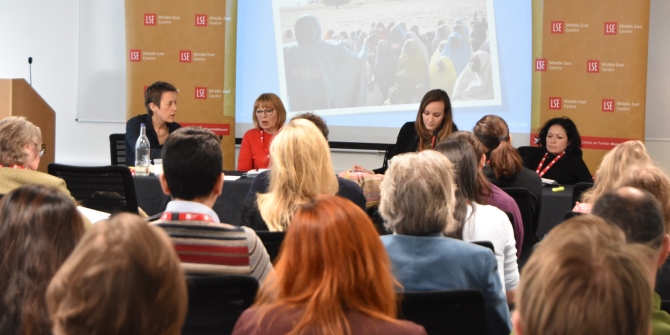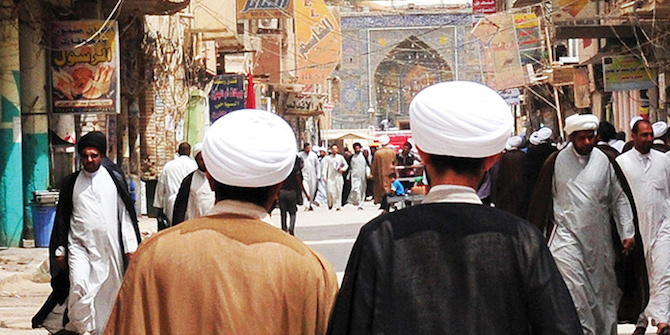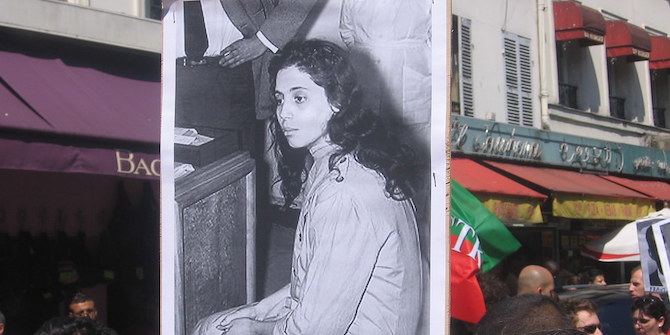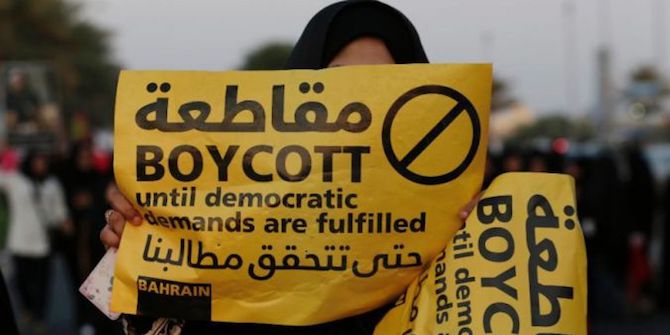by Bronwen Manby

“Legal identity” is all the rage in international policy circles. From the target set by the Sustainable Development Goals to “provide legal identity for all, including birth registration” by 2030, to the World Bank’s initiative on “Identification for Development”, commitments related to identification are multiplying. Amidst anxieties about migration and refugee flows, the Global Compact on Migration also affirmed the obligation to “ensure that all migrants have proof of legal identity and adequate documentation” ostensibly “as a means to empower migrants to effectively exercise their human rights”. Yet registration and documentation can also be tools of persecution, as Natalie Brinham highlights in the context of the Rohingya of Myanmar, or mobilised by the radical right, as Elspeth Guild warns.
North Africa is a testing ground for the application and impact of these commitments. The region, historically known for high rates of emigration, is increasingly learning to accommodate people whose origins lie in other regions of the world. Many are refugees whose documents have been destroyed or lost; others have never held identity documents from their country of origin; some are children born in transit countries with no possibility of registering their birth.
The LSE Middle East Centre teamed up with partners in Egypt and Morocco – the Centre for Migration and Refugee Studies (CMRS) at the American University in Cairo and the Association marocaine d’études et de recherches sur la migration (AMERM) associated with the Mohammed V University in Rabat – to uncover the procedural challenges related to confirmation of various kinds of “legal identity” for migrants and refugees, especially the confirmation of nationality either of the state of birth or of a parent.
While the legal provisions leaving children in North Africa at risk of statelessness are well known, these procedural challenges are relatively unresearched. Both Egypt and Morocco have high reported rates of birth registration – 99 percent in the case of Egypt and 96 percent for Morocco – a statistic which is usually regarded as providing substantial guarantees that children will acquire the nationality of their parents or the state of birth.
Nonetheless, refugees and migrants in both countries reported serious difficulties in securing birth registration for their children and identity documents for themselves.
The main barriers to registration of births in the host country documented by our partners were requirements for the parents themselves to present valid documents. While an asylum seeker or refugee permit was sufficient proof of identity for a parent, irregular migrants often lacked documents, and faced out-of-reach fees to renew them at their embassies – several hundred dollars for a document valid only two or five years.
Egypt demands a marriage certificate for all registrations of birth, and Morocco for Muslim parents: yet not all countries issue such documents (including both Syria and Sudan), and even those coming from countries where marriage certificates are issued might face insurmountable costs and other obstacles to arranging for an officially legalised copy from their embassies.
These requirements create a situation where those who cannot produce a marriage certificate or their own identity documents register their children under the names of other people, in order to secure their access to schooling and health care. The reported consequences include parents who obtained resettlement or who returned to a country of origin being unable to take their children with them. Although there are protections for abandoned infants in the relevant laws, there are no effective protection systems to provide paperwork to children born in transit countries, or to recognise new families or guardians for children separated from their parents.
Other challenges include a lack of information about procedures, fear of approaching the authorities, the costs of obtaining the supporting documents needed and the time needed to negotiate the bureaucracy. In case of births outside of health facilities, the lack of an official birth notification made formal registration much more difficult, and some hospitals withheld notifications as security for costs. Given all these challenges, the time period for registration of births before more elaborate procedures kicked in – 15 days in Egypt, 30 in Morocco – was unfeasibly short.
Even if a birth is registered in the country of birth, many – perhaps most – migrants interviewed had no idea that the laws of their home country may require births to be registered with their consular authorities for nationality to transmit from parent to child. Few had done so. In any event, not only registered refugees but also irregular migrants, as well as those who are neither but have other reasons to fear their embassy (for example, unregistered Syrian refugees), may feel unable to approach their embassies to request such documents.
The immense complexity of the interaction of different systems for personal status and civil registration under private international law has been the subject of research within the European Union (leading to a recommendation discussed by Alenka Prvinšek Persoglio), but understudied elsewhere. Our research showed the Kafkaesque impact of systems based on an imagined world of bureaucratic perfection on people whose lives have never been documented according to the expectations of systems presuming that migration and work are all organised through formal channels.
Where these difficulties meant that a child’s birth had not been registered, the reported consequences included children prevented from entering school or taking exams, or obtaining treatment at government hospitals. The lack of identity documents from a country of origin also created the practical impossibility of obtaining a regular migration status in the country of residence, other than that of asylum seeker or refugee, and could also make refugee status more difficult to obtain.
The policy recommendations that follow from this research are often obvious, and relate above all to the simplification of processes for birth registration, including the relaxation of the requirements for parental documents (including marriage certificates and residence permits) for births to be registered, and the institution of child protection systems. Similar recommendations have been made, amongst others, by UNHCR, UNICEF, the UN Human Rights Council, and NGOs including the Norwegian Refugee Council.
Much less remarked, though highlighted by Stefanie Grant, is the need for far greater efforts to facilitate access to consular assistance, going way beyond the current efforts of IOM as set out by Anne Althaus and Laura Parker. Consular assistance is essential not only for adults to obtain paperwork that they need both for themselves and to register the births of their children in the host country, but also for the recognition of the nationality of children born outside the state of the parents’ nationality.
New technologies may help with some of these challenges, but can only go so far, depending also on the appropriate legal and other infrastructure. Even in the UK, where it is estimated that only around 20 births are not registered each year, and the law remains more open than in many countries in providing access to British citizenship, children can be left at risk of statelessness by other barriers.
For the international policy commitments to legal identity to protect the rights of migrants – rather than merely to enable their control – attention is needed to another set of commitments, highlighted by the campaign and ten-point action plan to end statelessness launched in 2014 by UNHCR. A “legal identity” that protects the rights of those concerned is one that assures the right to a nationality, first established by the Universal Declaration of Human Rights in 1948.
This blog post and the others in the series are based on presentations during a workshop convened by the MEC on 1 March 2019 discussing statelessness and legal identity in the context of migration.
In this series:
- Preventing Statelessness among Migrants in North Africa and their Children: Birth registration and ‘legal identity’ by Bronwen Manby
- State Obligation to Establish Legal Identity in Comparative Perspective by Alenka Prvinšek Persoglio
- Civil Registration and Legal Identity in Humanitarian Settings by Ann Livingston
- Preventing Statelessness among Undocumented Migrants: The role of the International Organization for Migration by Anne Althaus & Laura Parker
- From Birth Registration to Confirmation of Citizenship: Is the UK process the model to aspire to? by Elan Schwarz and Brianna Gomez
- What is the Fuss over the UN’s Global Compact for Safe, Orderly and Regular Migration? by Elspeth Guild
- When Identity Documents and Registration Produce Exclusion: Lessons from Rohingya Experiences in Myanmar by Natalie Brinham
- Consular Protection, Legal Identity and Migrants’ Rights: Time for Convergence? by Stefanie Grant
- Obstacles to Accessing Civil Registration and Identification: NRC’s Field Experiences with Displaced Persons by Fernando de Medina-Rosales
- Defining Identity and Identifying Migrants in the Global Compact for Migration by Tendayi Bloom






